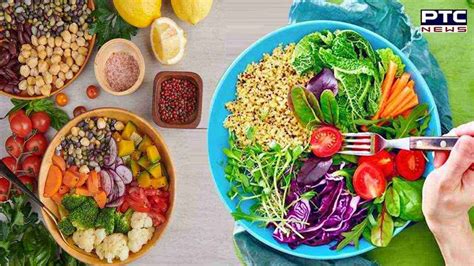Best nutrition strategy for lean muscle gain & rapid recovery?

Optimizing Your Diet for Muscle Growth and Fast Recovery
Achieving lean muscle gain isn’t just about hitting the gym hard; it’s profoundly influenced by what you eat and when you eat it. A well-designed nutrition strategy is the cornerstone of effective muscle growth, enabling your body to repair and rebuild muscle tissue stronger than before, while also accelerating recovery to keep you performing at your peak.

The Macronutrient Blueprint for Muscle & Recovery
Understanding and correctly balancing your macronutrients—protein, carbohydrates, and fats—is paramount. Each plays a distinct yet crucial role in the process.
Protein: The Undisputed King of Muscle Building
Protein is essential for muscle protein synthesis (MPS), the process by which your body repairs and builds new muscle tissue. To maximize lean muscle gain and recovery, aim for a consistent intake of high-quality protein throughout the day. A general guideline is 1.6-2.2 grams of protein per kilogram of body weight. Focus on complete protein sources like lean meats (chicken, beef, fish), eggs, dairy (Greek yogurt, cottage cheese), and plant-based options such as tofu, tempeh, and legumes.

Carbohydrates: Fueling Performance and Replenishing Glycogen
Often misunderstood, carbohydrates are vital for intense training and recovery. They provide the primary fuel source for your workouts, sparing protein from being used for energy. Post-workout, carbs are crucial for replenishing muscle glycogen stores, which are depleted during exercise. This replenishment is key for recovery and preparing your muscles for the next session. Opt for complex carbohydrates like oats, brown rice, quinoa, sweet potatoes, and whole-grain bread for sustained energy, and simpler carbs post-workout for faster absorption.
Healthy Fats: Hormonal Balance and Overall Health
While not directly involved in muscle protein synthesis, healthy fats are essential for hormone production (including testosterone, vital for muscle growth), nutrient absorption, and reducing inflammation. Incorporate sources like avocados, nuts, seeds, olive oil, and fatty fish (salmon, mackerel) into your diet. Aim for 20-30% of your total daily calories from healthy fats.
Strategic Meal Timing: Maximizing Anabolism and Recovery
When you eat can be almost as important as what you eat, especially around your workouts.
Pre-Workout Nutrition
About 1-3 hours before your workout, consume a meal or snack containing a mix of complex carbohydrates and some protein. This provides sustained energy and primes your muscles with amino acids. Avoid high-fat or very high-fiber meals right before training, as they can cause digestive discomfort.
Post-Workout: The Anabolic Window
The 30-60 minutes immediately following your workout is often referred to as the “anabolic window.” While not as strict as once believed, consuming a meal rich in protein (20-40g) and fast-acting carbohydrates (0.8-1.2g per kg body weight) during this period is highly beneficial for kickstarting muscle repair and glycogen replenishment. A protein shake with a banana or a chicken breast with white rice are excellent options.

Hydration and Micronutrients: The Unsung Heroes
Stay Hydrated
Water plays a critical role in almost every bodily function, including nutrient transport, temperature regulation, and joint lubrication. Dehydration can impair performance and slow down recovery. Aim to drink plenty of water throughout the day, increasing intake during and after workouts.
Embrace Micronutrient-Rich Foods
Don’t just focus on macros. Vitamins, minerals, and antioxidants found in fruits, vegetables, and whole grains are crucial for energy production, immune function, and reducing exercise-induced oxidative stress, all of which support muscle growth and recovery. A diverse diet ensures you get a full spectrum of these vital compounds.
![🔥 [80+] Beautiful Colorful Wallpapers | WallpaperSafari](/images/aHR0cHM6Ly90czMubW0uYmluZy5uZXQvdGg/aWQ9T0lQLlBRODlndlpnREFVM0ZJcEpUVmZJV0FIYUVvJnBpZD0xNS4x.webp)
Smart Supplementation: An Edge, Not a Shortcut
While a solid whole-food diet is the foundation, certain supplements can complement your efforts:
- Whey Protein: Convenient for meeting protein targets, especially post-workout.
- Creatine Monohydrate: Proven to enhance strength, power, and muscle mass by increasing ATP regeneration.
- BCAAs (Branched-Chain Amino Acids): Can help reduce muscle soreness and fatigue, particularly during fasted training.
- Omega-3 Fatty Acids: Support overall health, reduce inflammation, and aid in recovery.
Always consult a healthcare professional or registered dietitian before starting any new supplement regimen.

Consistency and Customization are Key
The best nutrition strategy is one you can consistently adhere to. While general guidelines exist, individual needs vary based on body type, activity level, metabolism, and personal preferences. Track your progress, adjust your intake as needed, and be patient. Lean muscle gain and rapid recovery are a marathon, not a sprint.
Conclusion
A strategic approach to nutrition is as critical as your training regimen for achieving lean muscle gain and rapid recovery. By prioritizing adequate protein, balancing complex carbohydrates and healthy fats, optimizing meal timing, staying hydrated, and embracing micronutrient-rich whole foods, you provide your body with the optimal environment to build muscle efficiently and bounce back faster, paving the way for sustained progress and peak performance.









